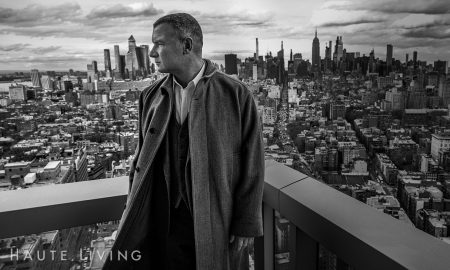The scene in California was much different than what the native New Yorker was encountering back home, and the hippie culture moved him. “I was struck by the culture, struck by the enormity of the change in my coming from urban New York to this new environment, with the flowing dresses and the utopian, wonderful Haight-Ashbury lifestyle. That was alien to my Brooklyn background, not unacceptable or hostile, just outside of the realm of my experience. I went to the grounds and I saw these new artists come on stage and saw one act called Big Brother & the Holding Company. An unbilled Janis Joplin came on stage, and that was my life-changing moment, when I saw her talent, her hypnotic, magnetic, compelling, electrifying, charismatic, soulful voice. Probably the greatest white soul voice of all time.”
That voice was Davis’ call to action. “I knew that I couldn’t sit on the sidelines. I had to move; I felt it in my being.” He signed Joplin and Big Brother, buying their just-signed contract with a small company called Mainstream Records for $200,000. Out of Monterey, he also signed a new group The Electric Flag with Mike Bloomfield on guitar and Buddy Miles on drums. Six weeks later, he was asked to audition a group that was just starting out, led by a man named Al Kooper. His group was called Blood, Sweat & Tears. Davis decided he would quietly gild the music recording process for these artists. “I remember preparing the marketing people of Columbia for what I felt to be a revolution, the electrification of the guitar, a different approach towards contemporary music. And when all three came home—not just one of the three or two of the three, but when all three made their impact on music—it gave me the confidence to keep trusting my instinct and my ear.”
These infallible instincts are responsible for some of the most important musical artists in recent history. Davis went on to sign the likes of Santana, Chicago, Billy Joel, Earth, Wind & Fire, Aerosmith, and he brought Neil Diamond and Pink Floyd, before Dark Side of the Moon was released, to Columbia. It was Aerosmith that immortalized Davis in their song “No Surprise” with the lyrics “Old Clive Davis said he’s surely gonna make you a star, just the way you are.”
He was named the president of Columbia Records when he was just 35. The label just soared in every direction. For R&B, he founded and partnered Philadelphia International Records with Kenny Gamble and Leon Huff leading to The O’Jays, Teddy Pendergrass, and “Me and Mrs. Jones” by Billy Paul. He’s credited with sharpening the impact of Miles Davis on young audiences and then signing Herbie Hancock, The Headhunters, Weather Report, and the Mahavishnu Orchestra, opening up progressive rock to an important new audience. After a much publicized separation from Columbia Records in 1973 where Davis was dismissed, as the label and industry were traumatized by a payola investigation, Davis founded Arista Records in conjunction with Columbia Pictures. It should be mentioned that no payola was ever found at Columbia Records, and CBS and Columbia Records immediately issued a check for $1 million to secure record club rights to this new company owned and headed by Davis.
The song that launched Arista was Barry Manilow’s single “Mandy,” which immediately went to No. 1 upon its release. At Arista, he later discovered Whitney Houston and signed Dionne Warwick, Aretha Franklin, The Grateful Dead, and Lou Reed. He also joint ventured the LaFace label with L.A. Reid and Babyface, bringing in Outkast, TLC, Usher, and Toni Braxton; and the Bad Boy label, bringing in Puffy Combs and Notorious B.I.G.





















